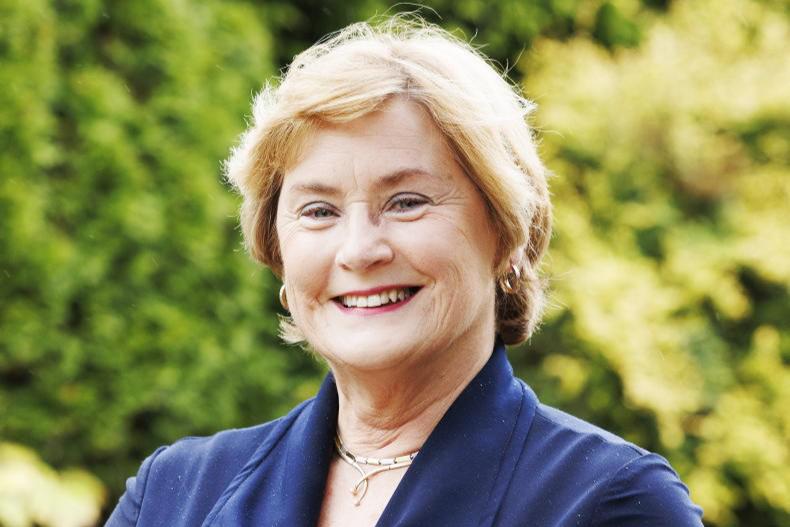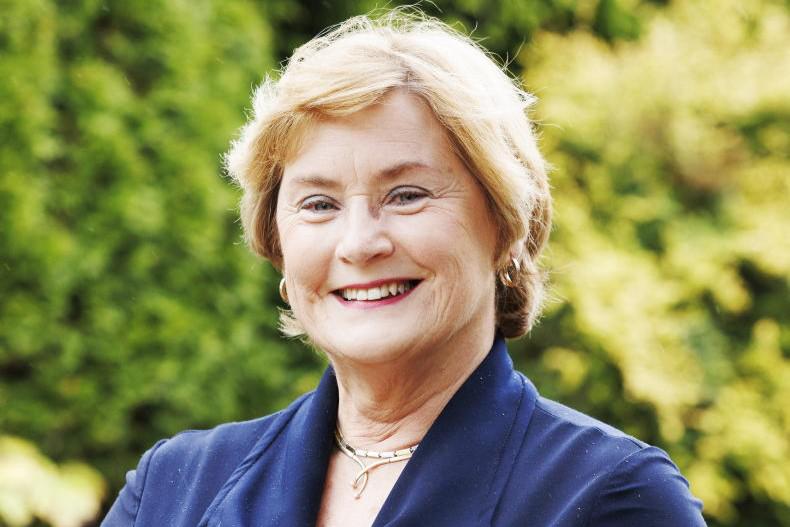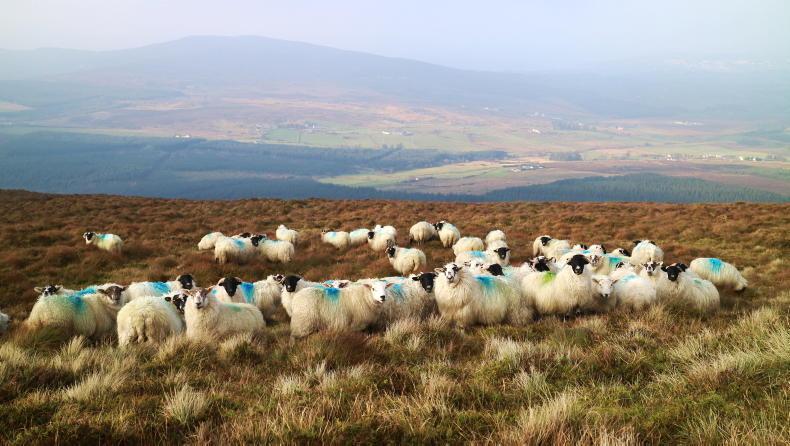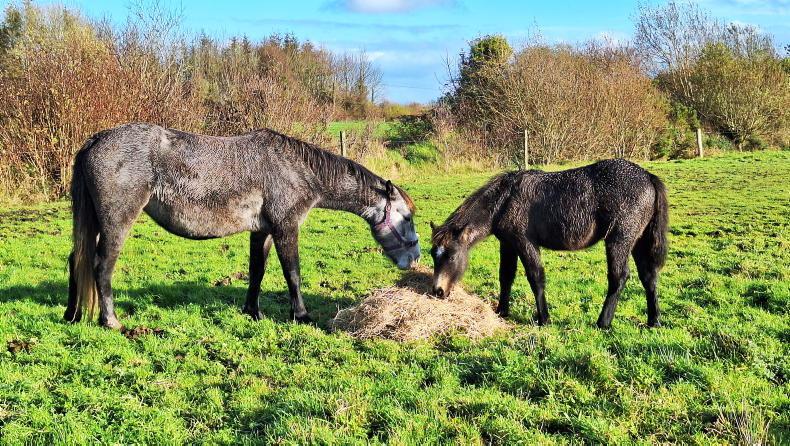Understanding the Common Agricultural Policy (CAP) and its processes has always been challenging for farming families. Funding is drawn down under two pillars. Pillar 1 money comes solely from the EU, hence the term – Direct Payments and Pillar 2 funds are made up of EU and National or Regional monies. Generally, one person in the household looks after the applications that need to be made and ensures that the required criteria are met in order to draw down payments without incurring penalties. Teagasc does trojan work in this area as do other independent advisers. Over the last few weeks the Irish Farmers Journal have organised a number of information seminars on the new CAP across the country. Farmers have found them very informative. I attended the one in Cork. Jack Kennedy directed proceedings in his own flamboyant way. We came home armed with the information required.
When Colm opted to come home farming, we were clear in our minds that the basic payment (BP) as we knew it would probably be greatly reduced or disappear over the forthcoming ten to fifteen years. Therefore, planning had to exclude reliance on BP for young farmers. Unfortunately, a reducing BP is becoming a reality for us.
Department advice
All ears were on Fran Morrin, from the Department of Agriculture, Food and Marine (DAFM). Years back, farmers were afraid to talk to department personnel. Oftentimes it was a case of shooting the messenger. When CAP regulations first came in, the paper work was daunting and engagement was difficult. Now, many farmers go to the Ploughing Championships and head straight to the DAFM stand to find out what the status of their application is and problems can be rectified quite quickly. A delayed payment is a nightmare for farm families.
Fran got straight into it. All schemes are changing and all entitlement values will change in 2023. The clawback on the sale of entitlements without land has been lifted for two years. Convergence continues throughout the new CAP. This means that our farm entitlement value will be decreasing while other farmers will see an increase. Transfer of entitlements can continue with little change.
Participation in an Eco scheme is voluntary but if you do not participate, you will not get that payment. Fran encouraged farmers to participate.
ACRES: The Agri-Climate Rural Environment Scheme, Pillar 2 flagship scheme has a wide menu of options for all farmers and is open for business. Payments will be made on the basis of results.
Make up of payments
From January 2023, the current Pillar 1 direct payment fund is being split in to five main parts.
BISS: Basic Income Support for Sustainability. This will make up the bulk of our payment. The number of entitlements we have will stay the same and each farmer will get a statement next February detailing the value of entitlements for the five years ahead of the new CAP. They will average around €155 each.
Eco scheme: Farmers must apply for this scheme to avail of it. Fran cautioned farmers to be careful not to opt out of the scheme by mistake. There are eight different agricultural practices and some can be doubled to give 11 options to choose from. Farmers need to adopt two of them. The Department expects Space For Nature to be a popular choice. The Eco payment is a flat rate payment/hectare. It is independent of entitlements and a farmer does not need to hold entitlements to get it. The payment /hectare is expected to be in the region of €66 to €75/hectare.
CIS-YF: The Complementary Income Support for Young Farmers scheme will be based on eligible hectares declared. One does not need to hold entitlements. The young farmer must have evidence of being in financial control. This payment will be €170 to €175/hectare up to a maximum 50 hectares for five years.
CRISS: Complementary Redistributive Income Support for Sustainability is designed to redistribute CAP funds from larger farms to medium and smaller sized farms. It is a payment on the first 30 hectares of peoples farms. The Department estimates that farmers will receive €40 to €43/hectare on the first 30 hectares.
CIS: National Reserve - Eligible farmers will continue to be able to apply for entitlements from the national reserve or a top-up to low-value entitlements.
Rigorous audits
Fran warned that there will be rigorous audits of the schemes and penalty risks if the regulations are not met. He encouraged farmers to use the payment calculators on the DAFM website to calculate the expected payment. He urged people to consider going organic as there are good start up and ongoing payments for it.
There are lots of decisions to be made around the kitchen table.
Read more
Katherine's Country: Diarmiud becomes a transplant recipient
Katherine's Country: laughter lights up Women & Agriculture
Understanding the Common Agricultural Policy (CAP) and its processes has always been challenging for farming families. Funding is drawn down under two pillars. Pillar 1 money comes solely from the EU, hence the term – Direct Payments and Pillar 2 funds are made up of EU and National or Regional monies. Generally, one person in the household looks after the applications that need to be made and ensures that the required criteria are met in order to draw down payments without incurring penalties. Teagasc does trojan work in this area as do other independent advisers. Over the last few weeks the Irish Farmers Journal have organised a number of information seminars on the new CAP across the country. Farmers have found them very informative. I attended the one in Cork. Jack Kennedy directed proceedings in his own flamboyant way. We came home armed with the information required.
When Colm opted to come home farming, we were clear in our minds that the basic payment (BP) as we knew it would probably be greatly reduced or disappear over the forthcoming ten to fifteen years. Therefore, planning had to exclude reliance on BP for young farmers. Unfortunately, a reducing BP is becoming a reality for us.
Department advice
All ears were on Fran Morrin, from the Department of Agriculture, Food and Marine (DAFM). Years back, farmers were afraid to talk to department personnel. Oftentimes it was a case of shooting the messenger. When CAP regulations first came in, the paper work was daunting and engagement was difficult. Now, many farmers go to the Ploughing Championships and head straight to the DAFM stand to find out what the status of their application is and problems can be rectified quite quickly. A delayed payment is a nightmare for farm families.
Fran got straight into it. All schemes are changing and all entitlement values will change in 2023. The clawback on the sale of entitlements without land has been lifted for two years. Convergence continues throughout the new CAP. This means that our farm entitlement value will be decreasing while other farmers will see an increase. Transfer of entitlements can continue with little change.
Participation in an Eco scheme is voluntary but if you do not participate, you will not get that payment. Fran encouraged farmers to participate.
ACRES: The Agri-Climate Rural Environment Scheme, Pillar 2 flagship scheme has a wide menu of options for all farmers and is open for business. Payments will be made on the basis of results.
Make up of payments
From January 2023, the current Pillar 1 direct payment fund is being split in to five main parts.
BISS: Basic Income Support for Sustainability. This will make up the bulk of our payment. The number of entitlements we have will stay the same and each farmer will get a statement next February detailing the value of entitlements for the five years ahead of the new CAP. They will average around €155 each.
Eco scheme: Farmers must apply for this scheme to avail of it. Fran cautioned farmers to be careful not to opt out of the scheme by mistake. There are eight different agricultural practices and some can be doubled to give 11 options to choose from. Farmers need to adopt two of them. The Department expects Space For Nature to be a popular choice. The Eco payment is a flat rate payment/hectare. It is independent of entitlements and a farmer does not need to hold entitlements to get it. The payment /hectare is expected to be in the region of €66 to €75/hectare.
CIS-YF: The Complementary Income Support for Young Farmers scheme will be based on eligible hectares declared. One does not need to hold entitlements. The young farmer must have evidence of being in financial control. This payment will be €170 to €175/hectare up to a maximum 50 hectares for five years.
CRISS: Complementary Redistributive Income Support for Sustainability is designed to redistribute CAP funds from larger farms to medium and smaller sized farms. It is a payment on the first 30 hectares of peoples farms. The Department estimates that farmers will receive €40 to €43/hectare on the first 30 hectares.
CIS: National Reserve - Eligible farmers will continue to be able to apply for entitlements from the national reserve or a top-up to low-value entitlements.
Rigorous audits
Fran warned that there will be rigorous audits of the schemes and penalty risks if the regulations are not met. He encouraged farmers to use the payment calculators on the DAFM website to calculate the expected payment. He urged people to consider going organic as there are good start up and ongoing payments for it.
There are lots of decisions to be made around the kitchen table.
Read more
Katherine's Country: Diarmiud becomes a transplant recipient
Katherine's Country: laughter lights up Women & Agriculture









SHARING OPTIONS